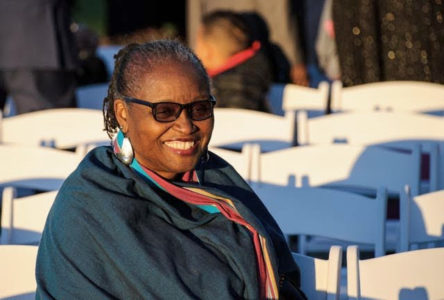Global Perspective Awardees Karl and Angela Bennett are the Founders of KBC Learning, a non-profit organization focused on building literacy skills in underserved communities in Jamaica. They have been partners of LearnServe, acting as thought leaders and running workshops for the LearnServe Jamaica program since 2011.
 Angela Bennett co-founded KBC Learning, and has been the organization’s Director since 2003. Angela is from Jamaica, but has spent most of her life in the United States, studying at the University of Maryland College Park, the University of Cincinnati, and George Washington University. She is an award-winning teacher who has worked with young people at all levels from K-12 to Junior College and Adult Education. She is a qualified Speech-Language Pathologist/Audiologist, as well as a certified teacher for Speakers of Other Languages, K-12. Her accomplishments also include applied research in classrooms.
Angela Bennett co-founded KBC Learning, and has been the organization’s Director since 2003. Angela is from Jamaica, but has spent most of her life in the United States, studying at the University of Maryland College Park, the University of Cincinnati, and George Washington University. She is an award-winning teacher who has worked with young people at all levels from K-12 to Junior College and Adult Education. She is a qualified Speech-Language Pathologist/Audiologist, as well as a certified teacher for Speakers of Other Languages, K-12. Her accomplishments also include applied research in classrooms.
We recently spoke with Angela Bennett about her experience with LearnServe, founding KBC Learning, and advice for young travelers and changemakers.
What inspired you to get involved with LearnServe International?
When we started working in Jamaica in 2005, we were working with young men at Karl’s high school alma mater Jamaica College. Our focus was on raising their reading level, but at the same time we realized that the communities they were coming from were experiencing disadvantage in the education they were getting and in their social resources. So it occurred to us that we needed to do something with them beyond the classroom. We made contact with a primary school next. We thought that if we started with younger kids we could help them build a foundation and see themselves as contributing to their own communities through KBC Learning.
With that goal in mind, I looked at a range of programs for partnership. I knew I wanted to do something structured with another organization. At the same time, Karl met LearnServe’s founder Hugh Riddleberger, and they started talking about young people connecting outside of the Washington, DC area. If the American students came to Jamaica, that would be a way for them to see social innovation in action in our context.
After we met Hugh, we hosted the first group of Learnserve students two years later. In the meantime, we started introducing our students to service learning activities, and that’s how we got connected to LearnServe’s work.
What advice would you give young changemakers?
I’m not absolutely sure there is a formula to social action. What’s most important is that you have a strong, intrinsic desire to make change. Try to do what you can, and connect with other people are doing similar things. Whatever you are doing, make sure you adapt it to the local context.
More than anything else, you have to have the desire. Countries that get resources from other countries still need the power to act themselves. That is one thing we have to work on diligently with our community in Jamaica. We ask: how can we give all people the skills and opportunities to work on their own ideas?
What have been your major takeaways from working with LearnServe?
I like the diversity of the LearnServe groups. I like that your students come from different schools in the DC area and from different backgrounds. I think that sort of diversity will help people to learn about the differences and similarities they see in the world. I like the preparation work that is done with the students before they go on the trips ‒ unlike some groups that just send students for service over the summer. It’s a very good approach to prepare students ‒ it builds a strong foundation, so that by the time they get to the country that they’re visiting, they can understand and appreciate social entrepreneurship in that context.
How does KBC Learning Promote social innovation with young people?
KBC has a physical location, where our students and their families can gather. We provide an education outside what is offered in the local schools, and we run a service learning program. At the beginning of each school year our students come up with ideas for service projects. We facilitate them going into the community and interviewing residents to get a feel for whether what they have in mind is conducive to what the residents want.
Our students are engaged in service learning because they are interested in what’s going on, not just to put something on their college apps. The Jamaican government is also encouraging entrepreneurship here, as a way to generate jobs for high school and college graduates. So we are trying to introduce the social aspect of entrepreneurship to this trend, so that all will benefit in a meaningful way.
